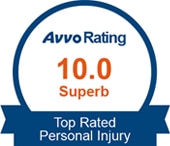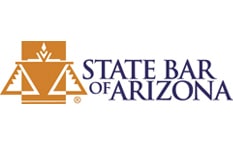Does Arizona Punish Speeding as a Criminal Violation?
Many motorists have been stopped by a law enforcement official for speeding. However, few realize said traffic offense might be considered a criminal violation. A top Arizona criminal lawyer cautions the state’s drivers to understand this fact and familiarize themselves with associated regulations.

Civil Speeding
In Arizona, motorists are expected to maintain safe speeds. Typically, this means keeping up with traffic while obeying safety regulations and respecting underlying circumstances like the weather conditions. State traffic laws establish speed limits based on the prima facie, or presumed limits principle. These regulations stipulate that law enforcement officials can ticket a motorist for traveling 15 miles per hour over the established limit when approaching school crossings, 25 miles per hour in excess of posted limits in commercial and residential districts, and over 65 miles per hour everywhere else.
The severity of the punishment for a civil speeding offense hinges on several factors, such as the specific county said offense was noted in, just how fast the motorist was moving, and if said actions precipitated an accident. Typically, civil infractions result in fines ranging from $150 to $500.
Criminal Speeding
However, more a more serious, criminal violation is titled criminal speeding. This offense is categorized as a Class Three misdemeanor. Motorists are subject to criminal speeding charges if they are found to exceed 85 miles per hour on any street, thoroughfare, or highway, exceeding a posted limit by more than 20 miles per hour, or when traveling at speeds greater than 35 miles per hour when nearing a school crossing.
Penalties for Criminal Speeding
Criminal speeding is no joke. Penalties can be stiff and might even include appreciable jail time. The specific punishment will depend on the act’s severity, the motorist’s driving record including any prior history of criminal speeding, and certain other notable events. If handed the harshest penalties, the subject in question could receive as much as $500 in fines and 30 days in jail. However, other untoward and potentially costly occurrences could result as well.
If the motorist was apprehended following the traffic stop, there is a distinct possibility said subject will have to pay to reacquire their car from the location to which it was towed. Additionally, criminal speeding convictions result in license points accumulation. Each offense costs the perpetrator three points. Should a driver accumulate 13 or more points in one year, the state could suspend their driving privileges. Criminal speeding could also exercise a significantly negative impact upon insurance rates. Providers are less likely to ensure or charge exorbitantly hiked premiums to motorists holding such dubious driving records.
The Impact of An Experienced Criminal Defense Attorney
Individuals facing criminal speeding charges are strongly urged to consult with a reputable and experienced defense lawyer. Said legal professionals can review a motorist’s case and might be able to help said subject get their charges reduced to a civil speeding offense, receive less harsh penalties and fines, or possibly even have the charges thrown out altogether.
Contacting Us
Arizona drivers dealing with criminal speeding charges are implored to contact the Law Offices of Gary L. Rohlwing. Rohlwing holds extensive experience handling such cases and an impressive record of helping clients yield more favorable outcomes. Additional information about his firm and the services he provides can be found by accessing https://www.criminal-duiattorney.com/.







